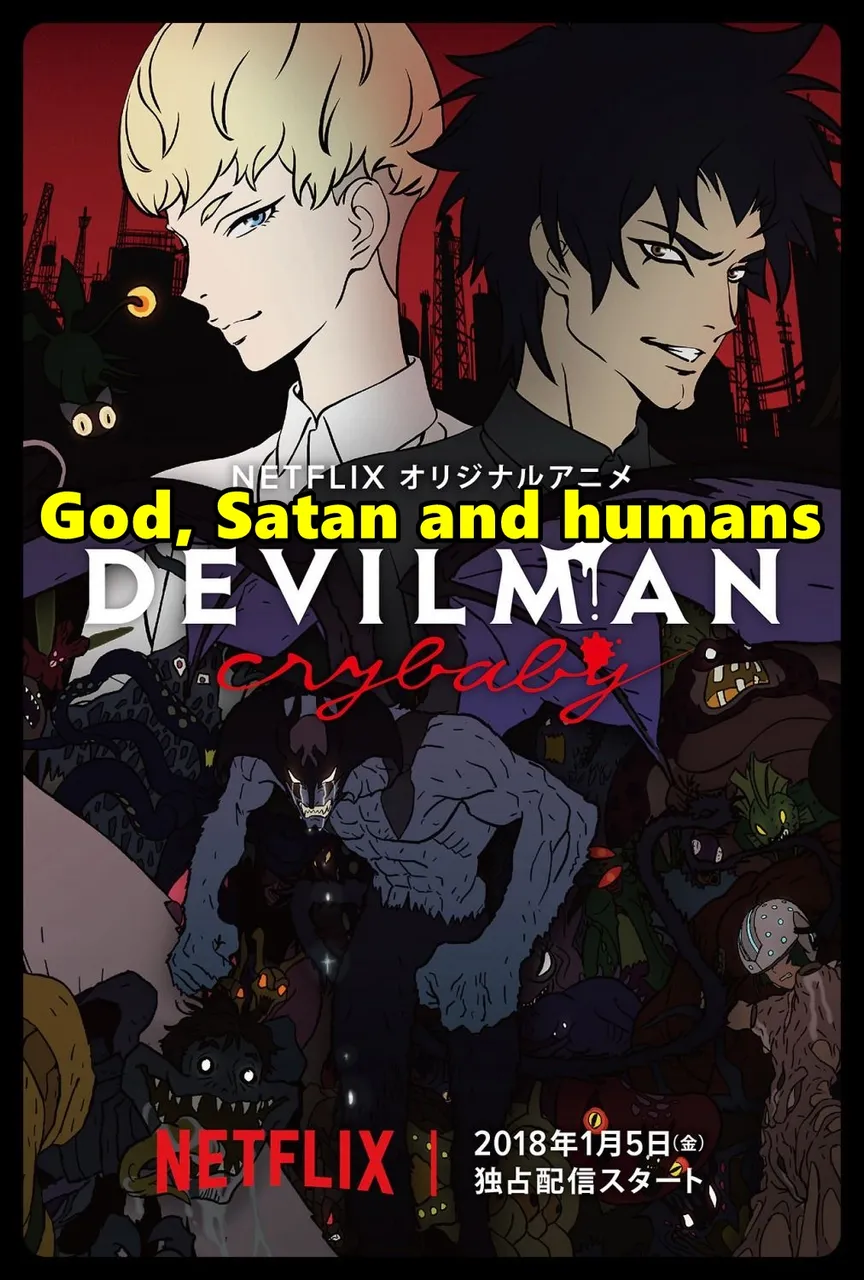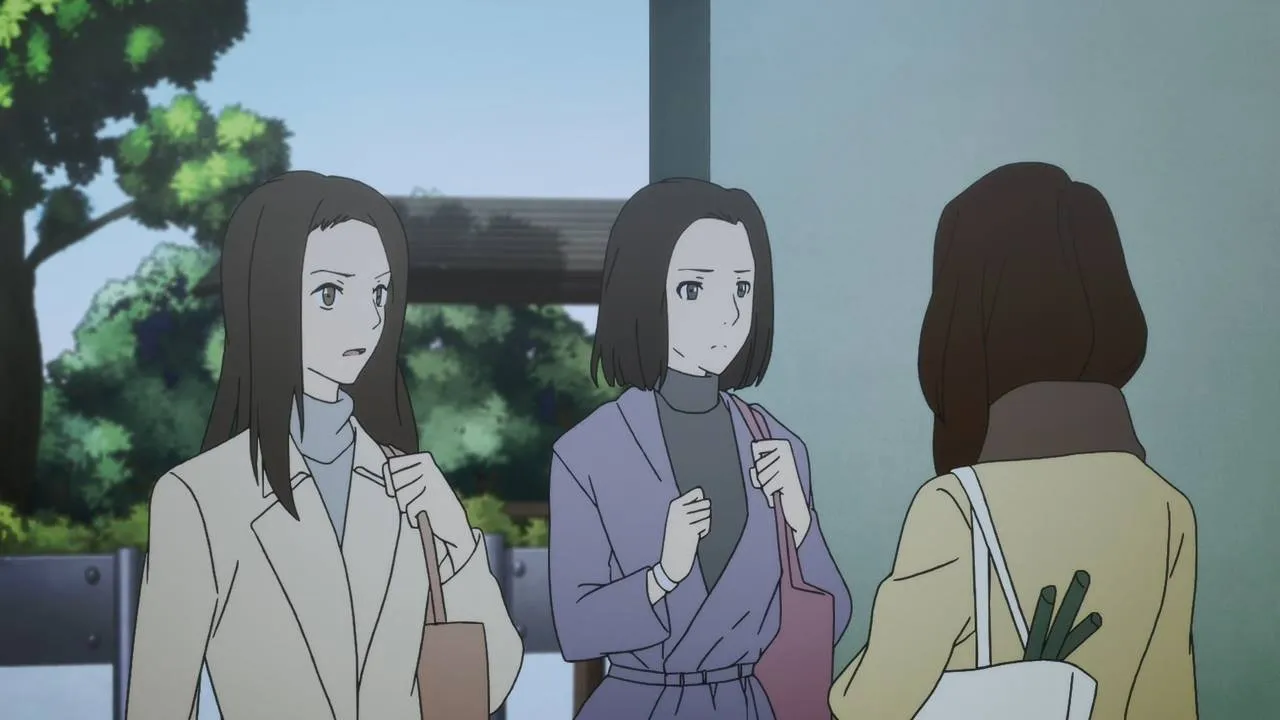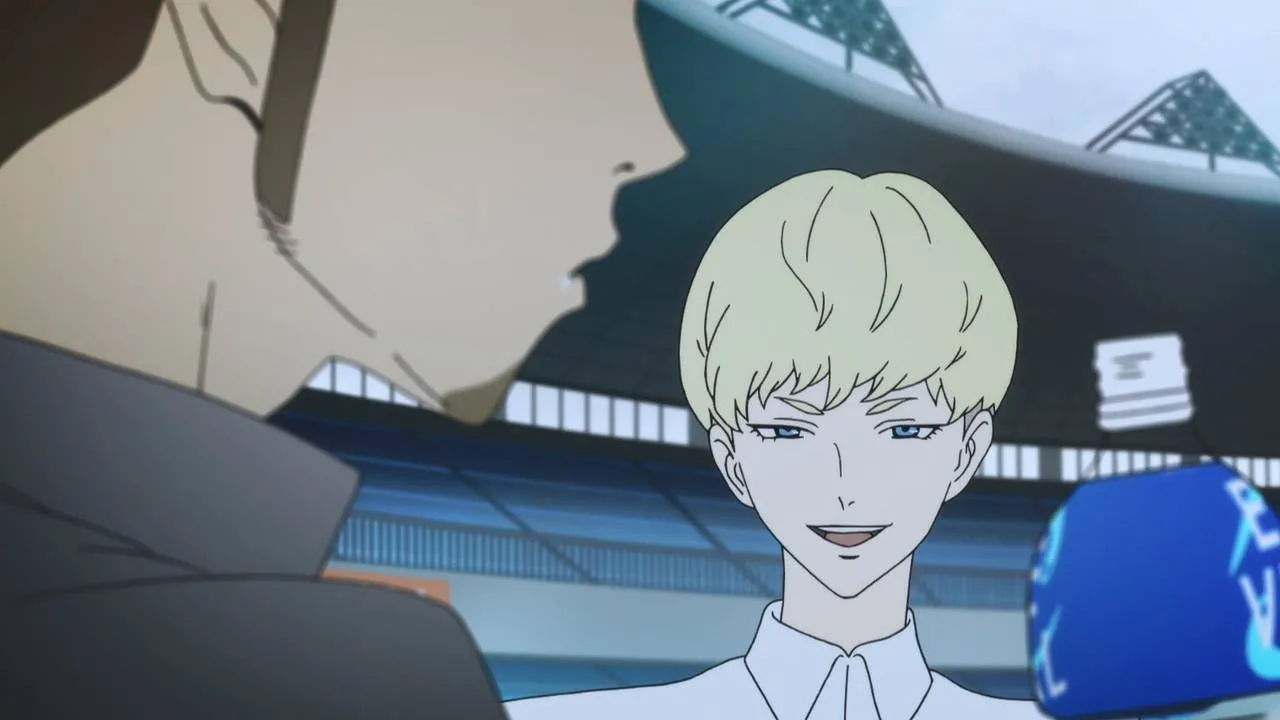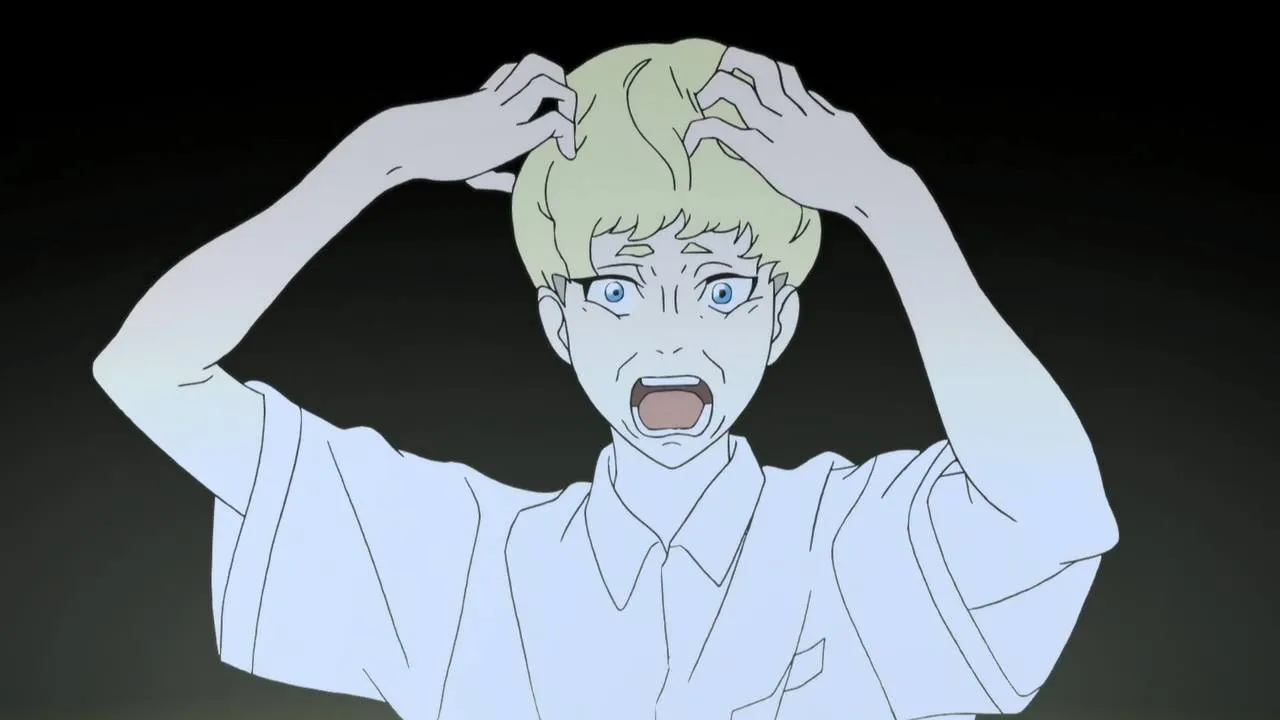
My attitude to "Devilman: Crybaby" is an example of the fact that a favorite fairy tale does not necessarily have to be the one we consider to be one of the best. Although the series influenced me and my worldview (like "Kaiji: Ultimate Survivor", "Lupin III", "Nana", "Space Brothers"), I can't rate it as a nozzle or a nine with a plus. Not because of any errors in the plot or unnecessary elements. Although some of the drawings hurt a little, the rest made up so much that I could turn a blind eye. And the action sped a bit too fast, but otherwise, I have no major reservations about the fairy tale. I just think that you could get more out of this idea. For example, lengthen a few episodes, add a few heroes or a few new threads, or expand them more. "Devilman: Crybaby" is asking for it, some scenes were begging for development! The action rushes to break his neck, man can barely "love" the characters, and they die in the next episodes. It was felt that some of the threads were simply unchecked. In the sense they did their job and they could be checked off. A few additional episodes would not negatively affect the level of the series, and this one could even rise. Anyway, despite my slight complaints, I fell in love with this fairy tale and I definitely want to share my thoughts with you.
Apart from religious themes, people are my favorite part of DMC. Few anime have shown us so truly. Much of this is due to the skillful and experienced director, who presents many things according to the principle of "show don't tell". It is about showing things without resorting to what the characters are doing or thinking about. A good example is the scene when Taro devours his own mother and his father looks at the whole situation. Although the partially changed boy doesn't say a word, we can hear in his mind his voice: Gomene, Oto-san. Returning to the subject, although we can see a very wide range of behavior and reaction of the characters, the creators decided to focus mainly on these worse shades of humanity. Such that we can associate e.g. from the split of Yugoslavia (where a neighbor killed a neighbor), or World War II on the part of Germans, Ukrainians, Russians, and Japanese (when we could see total animalization of the above-mentioned nations). We are observing a gradually growing spiral of hatred between people and the effects of its overload. This can be seen from the Makimura family and the heroes of the background. Although they have some minor sins on their conscience, most of them are sincerely good. They are ready to sacrifice for a higher purpose and try to do what they can instead of bothering in anticipation of inevitable death. We see how the characters change as a consequence of their experiences - how they affect their friendships or approach to life. The story, which at first could be described as "shounen for older teenagers", with time becomes darker, in which positive and joyful sensations get less and less. Like Mika, whose family, the family at first carelessly approaches life, but with the changing world, there is less and less joy in their home.

Speaking of which, I cried at two stages. The first is the one in which Akira saves 3 people from stoning. Director Masaaki Yuasa perfectly combined three events from different places. Miki appealing for world peace through the internet in his home, a young boy hesitating to throw a stone at one of 3 attached people and Akira, who defends the innocent with his own body, accepting stones intended for them. The boy finally decided to leave the group of people and hugged the hell. The attackers were initially shocked and felt cognitive dissonance, but the young man's gesture changed their attitude. Similarly, in the case of Miki, whose appeal resulted in the appearance of the Devilmen and a change of view on this matter in many people. Every time I watched this passage, it was squeezing my throat with emotion. An amazing emotional bomb of various, throbbing emotions. Not one in this anime anyway. As for the second, I was once in a situation like Akira. I mean, when he told Miki that her parents and brother were dead. I also got this unpleasant "honor" to tell someone that the person closest to him was killed. The director flawlessly gave away those moments. Emotions, which on the one hand burst a man from the inside, but on the other, weigh him down like a heavy griffin on his chest. Watching this moment, I felt like this event did not pass several years and only a few days.

Satan has hinted to us a few times that he did not have to work too hard when making homo sapiens. Sure, he created a situation for them to sin and lied to them a little. However, people themselves tend to solve matters brutally and are motivated by selfish motives. It is known that not everyone is bad, but as history or everyday life has shown many times - although the human race has created or defended a lot, it has destroyed even more. I know this sounds like a shabby ecological truism, but there is nothing to hide, humanity has always been guided by its selfish nature. We are ruthless in nature. Satan merely guided their attention and sowed uncertainty in their minds to their neighbors. It is usually enough to dehumanize our opponents or give us a logical reason to justify the murder or destruction of someone else's property. For this reason, we agree on the issue of partial restriction of liberty (by law and its enforcers). We prefer everyone to act within a universally accepted law than the law of force would decide. Human nature is unchanging and it is worth imposing some restrictions on the good of the community.
In the past it wasn't as light as it is today. The world before WW1 looked completely different from that after WW2. It was more dangerous, as well as today's opportunities to change lifestyles, rebound or find a new job. Not to mention the worse flow of information and messages, which also directly translates into self-development and greater awareness of humanity. Anime perfectly shows that despite compulsory education, greater self-awareness and knowledge of people, we are not able to get rid of our original behavior. Not only that, as people for centuries we catch ourselves with the same mistakes and we are constantly trapped. We can be told a lot of things that we will truly believe and, if properly directed, are able to do terrible things.

Politicians and rulers have been using the principle of "divide and rule" for centuries. After World War II, the Nazi and Soviet achievements in the field of propaganda were taken over and a term such as "cooking a frog" was created. It is about changing human thinking (e.g. setting a majority on a minority or vice versa, changing the way of thinking, showing a reality different from the one we see with our own eyes), using the media, comics, feature films, paid clappers, authorities for rent, etc. I will miss the example of a television set and demons pretending to be famous personalities in the DMC world because probably everyone has pointed out (and he has been quite mainstream for several years). Much more interesting and significant was the conversation of Taro's mother with carnival friends about demons. Women thoughtlessly repeated what they heard in the propaganda box and did not notice how the priorities in their lives changed. As you can see after the anime or our world, this happens regardless of latitude and country of origin. All it takes is the authority to speak out, support itself with some evidence, and most turn off thinking and uncritically believe in these views as if it was their own opinion. People often don't even ask themselves the basic question, "why am I doing this? What is my interest in this?" They just walk like lemmings into the abyss.
I don't know about you, but scenes with women and demon killing automatically brought to mind Germany of the last century. I mean hitting the lowest instincts, social frustration, arousing a sense of danger, and then pointing to the scapegoat and solving the problem. It is true that in Germany (as in all Europe at the time) Jews were not liked, so the association is only half-hit, but I mean similarity in the matter of the very process of social engineering and setting one on another. They did not even have to be especially encouraged, in some countries people even loaded Jews onto trains themselves (read where and in what quantities, interesting reading). Although this will not sound incorrect, people usually relieve their frustrations by forceful solutions. Bah! When they receive gratification or no criminal record, some people will not see other homo sapiens as members of the same race.

On the other hand, "Devilman: Crybaby" also gives many examples of positive testimonies of people. I have not seen a series that would show the good that comes straight from the heart. Not resulting from upbringing or calculating actions for specific benefits (whether material, like money or mental, like the feeling of doing a good deed). This goodness results from a sense of duty, conviction that this should be done. You can get something by the way, but it does it in the form of an additional reward / accelerating factor without affecting selflessness too much. The director shows this in an unobtrusive way, without moralizing the viewer too much. This time I will refer to the group of rappers we know from the beginning. I could not say that they are crystal good, but when they were needed, they behaved properly. Well, almost everyone, because one of them betrayed his companions. The issue of good/bad is not always visible at first glance and it is a little more complex than some people think. Some consider it evil, if someone breaks the law, someone else will think about taking prohibited substances, for example, while others (in my opinion those normal) will only look at deeds. More specifically, whether they did harm with bad intentions, to whom, etc. For most people, however, it is too difficult, so they simplify judging others as much as possible. In my opinion, whether someone is good or bad defines their choice at the time of the trial - whether they choose decisions that hurt others, or are harmless or beneficial to them.

When I watched the DMC for the second time, I followed Ryo's every step closely. At the first screening I didn't pay so much attention to him. From the beginning it was felt that this is a unique being. After his voice, eyesight and unprecedented confidence. A master of lies and manipulation who conceals his evil intentions under the guise of allegedly good intentions. Innocent-looking, but deadly menacing and cunning as a snake. The proof of his wisdom is that he left his "reminder" in the middle of Africa. Even if people ventured there (which is not so easy today), they would consider this totem to be a local deity. A brilliant idea, it gave him a soft landing after a fight with God.
Sometimes I criticize the Japanese for sometimes misinterpreting our culture and religion (and vice versa, Europeans do the same thing often). In this one case, I must admit that they did it at least well. I didn't know the Bible myself, but I read a dozen or so parables. The image of the Devil, God, and their relationship with the DMC corresponds to my image of these beings. I can imagine Satan acting like this on Earth. It is all the easier because 12 years ago I read in my first conspiracy theory how such Antichrist came to wealth and power over the world. That Ryo was an eloquent and intelligent boy with a rapidly progressing career. He also earned enormous money on high technologies, enabling him to operate freely on a large scale. In addition, he uses all possible tools to lie to people and create a savior who will easily solve their problems. Write it out, it's "our" Ryo. Eh, it's a pity that he didn't fight the first battle with God in the Golan Heights, then it would be beautiful with this conspiracy theory. Well, the scene with the destruction of one of the Pacific fleets was also naaaajs.

I left God for the end. When I was finishing my first screening, I underestimated his insignificant but important role. For my short time, I didn't even appreciate it. Only after a few days thanks to my buddy did I realize how important his role was and that he achieved victory on all fronts. When the anime began, his Adversary said with conviction: love does not exist, as well as sadness, adding after a while: I was wrong then. The devil's defeat was that he was unable to continue to fight God and had nothing else but to acknowledge his superiority and admit his mistake. It wouldn't have happened if he hadn't met Akira whom he loved as a brother. It was this feeling of irretrievable loss that made him realize that he had contributed to it. This time he doesn't cry from fear, but from the powerlessness and emptiness that arose in his heart when he realized that his life had lost meaning (something like Envy in a similar scene in FMA: B). An excerpt from several dozen minutes earlier showed that the Creator could easily defeat his opponent (it is a scene where Satan howled and shook in fear at the same time). However, he wanted the adversary to admit the defeat himself, so he gave him a free hand regarding the people. He did not interfere in its operation, like an adult who observes the child's action but does not interfere only with the effects.

I did not plan such a long text (or such a slip, for which I apologize to everyone waiting), but I wanted to justify it a little better and bring my perspective on these 3 things in "Devilman: Crybaby". I hope you enjoyed reading it. And how did you interpret this cartoon?